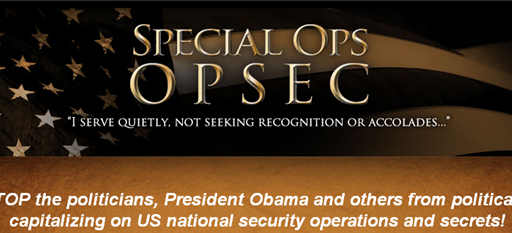Army Retreats on Milblogging
The Army has quickly backtracked on its new policy that would have effectively killed milblogging. In an official (yet, oddly, not-for-attribution) release, the military explains:
In no way will every blog post/update a Soldier makes on his or her blog need to be monitored or first approved by an immediate supervisor and Operations Security (OPSEC) officer. After receiving guidance and awareness training from the appointed OPSEC officer, that Soldier blogger is entrusted to practice OPSEC when posting in a public forum.
Indeed, they claim no real change was ever in the offing:
Army Regulation 350-1, “Operations Security,” was updated April 17, 2007 – but the wording and policies on blogging remain the same from the July 2005 guidance first put out by the U.S. Army in Iraq for battlefield blogging. Since not every post/update in a public forum can be monitored, this regulation places trust in the Soldier, Civilian Employee, Family Member and contractor that they will use proper judgment to ensure OPSEC.
They further clarify:
Soldiers do not have to seek permission from a supervisor to send personal E-mails. Personal E-mails are considered private communication. However, AR 530-1 does mention if someone later posts an E-mail in a public forum containing information sensitive to OPSEC considerations, an issue may then arise.
Soldiers may also have a blog without needing to consult with their immediate supervisor and OPSEC officer if the following conditions are met:
1. The blog’s topic is not military-related (i.e., Sgt. Doe publishes a blog about his favorite basketball team).
2. The Soldier doesn’t represent or act on behalf of the Army in any way.
3. The Soldier doesn’t use government equipment when on his or her personal blog.[…]
Just as in 2005 and 2006, a Soldier should inform his or her OPSEC officer and immediate supervisor when establishing a blog for two primary reasons:
1. To provide the command situational awareness.
2. To allow the OPSEC officer an opportunity to explain to the Soldier matters to be aware of when posting military-related content in a public, global forum.
None of that’s unreasonable on its face. Then again, many, including Andrew Olmsted, have essentially been told that blogging is off limits to them — and that was before this new/not new policy went into effect.
UPDATE: This is an official U.S. Army Public Affairs “Fact Sheet” dated yesterday. The source which passed it to me could not release it under their own name but I now have the release direct from DoD. It is to be posted on their Web site shortly.





I call shenanigans. From the Danger Room blog, interviewing the Major who _wrote_ the new reg,
(Emphasis mine)
Say what you want about how commanders can _choose_ to implement it, the actual wording of the reg is fairly straightforward; see para 2-1g:
Yeah, individual commanders have some wiggle room to interpret that, but that means every commander at every level could have a different policy. That won’t happen. Some general somewhere will make his own policy standard for the entire theater.
Bullshit. The Army can spin it how it likes now that they’re taking flak, but the intent was to quielty kill off independent milblogging & co-opt the remainder as just another piece of propaganda.
The Army can spin it how it likes now that they’re taking flak, but the intent was to quielty kill off independent milblogging & co-opt the remainder as just another piece of propaganda.
That’s my hunch as well. That’s why I use the verb “claim” rather than “says” or some variant.
Incidentally, that’s why I hate when supposedly objective press reports use the word “claim,” because it gives the impression (to me at least) that they’re calling the person a liar.
It cracks me up how many people automatically assume that anything the military does is for sinister purposes. There is a caution in the military for anything their members’ say. The presses will taken any little discontent or miss up and blow it way out of proportion or take a piece out of context and misuse it.
The OPSEC concerns of blogs, e-mail, mail and any other communication are very real. A private letter if it contains material that can compromises security can cause a military member to be court martial. Does the military stop personal letters? Sometimes. However, for the sake of moral they allow it most of the time. There is a trade off that must be managed. The Army spends a great deal of time and effort informing their members of what is appropriate and what is not. If a member has a question about it, they are advised to seek guidance since they are held liable for their communications. We don’t need to send a good soldier to jail for lack of poor judgment in communication.
The military tends to be secretive in nature and its members who spend much time in sensitive areas tend to be secretive in nature. It is or could be a tough deal to live with the fact that a stupid comment ended up getting someone killed.
Wayne,
At face value, you’re quite correct. But it’s the Army’s constant shifting of answers, backtracking, and equivocating that forces the listener to consider strongly that they’re being hornswoggled.